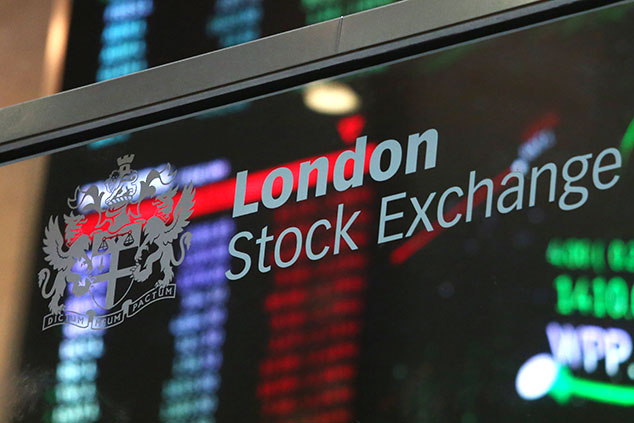“You know what the elites are really afraid of? Paying their taxes.”
This is a recent tweet from Labour leader and possible future Prime Minister of the U.K., Jeremy Corbyn.
Labour have built a campaign around the notion of “For the many, not the few”, a belief that Tory “austerity” has led to a decrease in functionality of the NHS, and a cut to a raft of social programs which has hurt the poorest in society.
They believe that for the UK to prosper there needs to be a rebalancing, and that the rich will have to pay their “fair share” via new, higher taxation, which will be used for public infrastructure, the NHS, improved social welfare programs etc.
This is predicated upon the belief that the rich are not currently paying their “fair share”, that Tory tax policies have left the rich off easy and that those at the top use various loop holes to skirt around paying what they should.
The question is…is this true? Do the rich not pay their fair share? Is the British taxation policy skewed towards the elites, at the expense of the ordinary Briton on the street?
Let’s discuss.
First, we have to delve into the semantics. What is “fair”?
It’s a word I largely dislike in political/economic discourse.
“But Cathal, how could you possibly have an issue with the word fair…Surely it only has good connotations”
Well, reader, that’s kind of the point. It’s a nice term that is literally undefinable in a political context.
What is a “fair” level of tax? I don’t know…do you?
Politicians love using the term fair, precisely because it’s undefinable. It can mean literally anything they want depending on what their beliefs are. Whatever policy they want to implement is done in the interest of “fairness”, and who can argue with making things more fair?
For example, Labour wants to raise the UK corporate tax rate to 26% from 18%…in the interest of “fairness”. The belief being that massively profitable multinational companies should be paying a fairer share.
What specifically is fair about 26%?…why not 27% or 25%?
It’s because taxation rates have little to do with “fairness”, and everything to do with providing revenue for the politician in questions specific policies, and most importantly, to be SEEN to be fair by the voting public.
Whatever tax rate is needed to pay for said policies is where the tax rate is going to be set (although politicians/governments tend to be poor at being able to project how much taxation their policies will generate).
“Fairness” has been used more prevalently in recent years when discussing the richest 1% of any given population. The argument being that since so much wealth has been accumulated by the richest 1%, policies need to be enacted to redistribute money from this 1% to the remaining 99%. Many argue that the richest 1% have benefitted from low taxes and that taxation has unfairly benefitted them at the expense of the other 99%…but is that true?
Who are the 1% in Britain?
If you make over £160,000, you are in the top 1% of earners. For the absolute elites in the 0.1% bracket, you have to earn £650,000.
The 1% comprises about 310,000 individuals.
They earn 14% of income in the UK.
They pay 27% of all income tax. This is up from 21% at the start of the century.
So, to repeat, 1% of the population makes 14% of the income, but pays 27% of all income tax.
They pay almost twice their PROPORTION of taxation.
43% of working age people pay no income tax. This number has risen noticeably in recent years due to the governments increasing of the tax free allowance.
To be clear, in the era of austerity, the percentage of income tax paid by the wealthiest has gone up significantly, and the percentage of income tax paid by the poorest has gone down significantly.
Is that fair? If not, what is?
In America, which is often held up as some ultra capitalistic market economy, the percentage is actually much higher. The richest 1% pays 37% of all income tax.
Is that fairer than the UK? I don’t know, because fair has no strict definition in these cases.
The dictionary definition of the word “fair” is listed as “treating people equitably without favouritism or discrimination”
Well, saying you’re going to tax some people one percentage and another group of people a different percentage, would appear to be both discriminatory and using favouritism….doesn’t it?
Equitable can mean different things to different people.
One person could argue that “equitable” could mean everyone pays the exact same amount. Everyone pays an equal amount, therefore that’s a definition of equitability.
Another person might state that, that is unfair as the poorer person pays a disproportionate amount of their income, so the solution is that everyone pays the same percentage. So, everyone, whether they make £20,000 of £20,000,000 a year, would pay 20% of their income to the state. This is known as a “Flat tax“.Thats their definition of equitability.
The current system in the UK is a “progressive” form of taxation whereby, there are different tax bands for every pound earned beyond certain salary levels. In the UK currently, the bands are as follows.
0-12,500- 0%
12,500-50,000-20%
50,000-150,000- 40%
150,000- 45%
Is this fair? I’ve no idea. Using a dictionary definition of fairness, it’s noticeably unfair..
Politicians can say they’re going to make the richest 1% pay more in taxes and do so while being completely at ease.
Why?
Because no one ever lost an election by appealing to 99% of the population and saying that the 1% are screwing it up for everyone.
Like it or not, theres a name for this type of ideology. Populism.
This all ignores the argument, that at some point, rich, mobile people could just up sticks and leave to become tax residents of Monaco, Switzerland, Cayman Islands etc etc. If this occurs, then tax revenue DECREASES.
It’s nearly impossible, however, to say how many people would leave, if any.
There is however, precedence, as France had to scrap its 75% top marginal rate of tax after less than 3 years, due to an outflow of wealthy citizens along with capital flight.
The Laffer Curve suggests that at a certain point in the taxation scale, tax payers will be incentivised to move their money or simply not work anymore, yet again, leading to LESS tax revenue. A simple example is to imagine 0% taxation rates, what revenue do you get? 0. If you set taxation rates at 100%, what revenue do you get? 0, as no one would possibly work if they thought all their money would be taken.
The take away is this. The term “fair” is malleable, and used by those declaring it to suit their specific agenda.
The 1% by essentially any definition of the word, currently pay a fair share in Britain, and that politicians simply use this notion of the elites not paying enough taxes as a populist means of gaining electoral advantage.
Fun fact: If you make more than $32k, E29k or £23k per annum, you are in the global 1%…you filthy rich pig.


